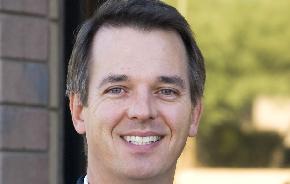Third in a four-part series on European Investment Issues.
How are German investment managers rallying in the wake of the open-end fund freeze of last year? Very well, thank you, although reports that the freeze would have no impact on the frothy investment market must be taken with a grain of salt. Dr. Karl-Joseph Hermanns-Engel, managing director of AXA Investment Managers in Cologne, Germany, sees trouble ahead in the perceptions of the market if not in the actual stability of the vehicles themselves. The crisis represented a general market loss of something on the order of 8 billion euros, reports Hermanns-Engel, and a loss for AXA of 300 million euros of its total 1.5 billion in retail funds. The result was a clear crisis of faith in the market, one which still lingers, as well as stepped-up debates over the nature of transparency and standardization. Nevertheless, AXA, which boasts a pan-European investment portfolio of 29 billion euros for global clients, is barreling ahead, as Hermanns-Engel told GlobeSt.com during Mipim in Cannes. The firm is planning rollouts of a variety of funds slated through the end of the year, and perceptions will simply have to catch up with reality, even as that reality changes.
GlobeSt.com: What’s the back-story on the crisis?
Hermanns-Engel: Open-end funds in Germany were very successful for 35 years. They were a kind of social exercise to make big investment volumes accessible to small monies. This changed over several decades with the evolution of institutional business generally, and over the past years a lot of institutional investors looking for short-term returns grew in their interest. But open-end funds always target investment in long-term and core or core-plus products. The internal problem of the product was long-term investments and daily availability of the money. So investors can at any moment have their money back. There was a 5% close as a security mechanism. Funds were frozen if they dipped below that, and last year, they did. It was the first time in 35 years we had to face this.
GlobeSt.com: What was the upshot for the industry?
Hermanns-Engel: The immediate reaction was an outflow of money. The funds lost 10% of their volume in December, about 8 billion euros. It was the first time it happened, and there is general doubt on the part of the public about those funds. They’ll never be the same as they were before; German open-end funds lost their virginity, and we all lost credibility.
GlobeSt.com: And for AXA?
Hermanns-Engel: We have been able to satisfy all of the demands of our clients. Our loss of 300 million euros was considerable, but since the first of February we have recovered 50 million. Generally, the market has stabilized and new money, mainly institutional money, is flowing into the funds again. We took our lessons, and we established a waiting list just to see who would be our investor. We need to have that knowledge. The prime purpose was not to control investors coming in or out but to make sure we were not sitting on a pile of liquidity. It gives us the chance to anticipate our institutional investors.
GlobeSt.com: The industry’s lobbying group [Bundesverband der Deutschen Investmentgesellschaften] is spearheading a reform movement and advocating standards. What is the near-term likelihood of acceptance of these standards?
Hermanns-Engel: It will not be easy since we have been discussing some of these measures for years. While the general performance of the building can be disclosed, the publication of rent levels in a building–down to the single rents–is dangerous. Our real estate people want to protect that, and I’m not too sure that in a building sale it is a good thing to have it out in the open.
GlobeSt.com: It’s curious that your own advocacy group would be lobbying for more regulation.
Hermanns-Engel: It’s a self-regulatory act to prevent outside bodies from imposing even stronger rules. Actually, it’s a cry for increased liquidity, increased transparency and less complexity.
GlobeSt.com: Turning to AXA’s strategies and plans, do you have any thoughts of US investments?
Hermanns-Engel: Not too much today, but we continue to look at the cycles in the US. We look one day to be in the states, but it is not the short-term plan. This is not the best cycle to step into the US markets. But we would like to change our destinations and Eastern European and even Asia would be targets for the next year.
GlobeSt.com: You’ve talked about some of your new funds. What’s on deck?
Hermanns-Engel: In terms of products, we are preparing a new open-end fund for German and international institutional clients. We’re finding we need to attune them more to cross-border investors and that will be the focus. Every year, we launch on the average of 10 or 13 funds of different sizes. This cross-border fund has a gross target equity of two billion euros.





 Copyright © 2024 ALM Global, LLC. All Rights Reserved.
Copyright © 2024 ALM Global, LLC. All Rights Reserved.











